Religion and Human Dignity
Introduction
The works of many philosophers and anthropologists of the Renaissance and thereafter are filled with the idea of human dignity, by virtue of his mere humanity, and regardless of such ties as religion, race, gender, and geographical habitude.
In the gloomy years following the two devastating World Wars, the collective conscience of the mankind resorted to the idea of dignifying and respecting every human being so that human dignity finds objective materialization and conflict among different human beings be avoided. For this purpose, the preamble to the Charter of the United Nations (adopted on 26 June 1945) regarded human being, from the theoretical point of view, as the founder of international community. Thus opening with the phrase, ‘We, the people of the United Nations’. It also spoke of the faith in the fundamental human rights, in the dignity and worth of the human person, in the equal rights of men and women of nations large and small. The Universal Declaration of Human Rights (adopted on 10 December 1948), the International Covenant on Civil and Political Rights (1966) and the International Covenant of Economic, Social and Cultural Rights (1966) also emphasize inherent human dignity, regarding it as the cornerstone of the idea of Human Rights. Despite the apparent consensus over this principle, one can further contribute to its consolidation by elaborating thereon, in order to reveal its foundations, aspects, and legal consequence. Establishment of man’s dignified nature on solid grounds would help defy his loss of identity, closing the door against the philosophies that represent human being as an absolute subject of his social environment, as well as guarding his freedom, dignity, and personality. This would also teach the high and the mighty that they could not treat their subjects as they will.
Although some drafters of the Universal Declaration of Human Rights, including the representative of the Netherlands, wished the text of the declaration to attribute man’s inherent dignity to God, the drafters according to Michael Freeman, avoided such reference possibly because God had turned into a controversial concept. In this way, they adopted an anti-fundamentalist approach in line with the theory of the denial of God. In this respect, they followed an idea founded by Montesquieu long before the drafting of human rights instruments. Without presenting substantiated evidence, he had said that religious rules and laws, however splendid, spiritual, and respected they are, should not serve as the basis for civil laws.
The present essay studies the concept of inherent human dignity from the perspective of religious teachings. It addresses such issues as the role of religion in justifying and providing a foundation for inherent human dignity, the extent of such dignity in religious literature, and the efficiency of the principle of human dignity based on religious teachings. It also seeks to suggest theoretical solutions with a view to ensuring as much consistency as possible between the ordinances of the shari’at and the principle of human dignity.
In defining the position of religion with respect to human rights, raising such fundamental questions would be of more necessity. In the same way as the moral directives in religious text do not prevent us from developing a moral philosophy, the specific ordinances and obligations of religion on the subject of human rights would lack sufficient effectiveness if not accompanied by informed philosophical debate.
At the outset it should be pointed out that seeking to base the idea of human dignity on religious grounds would not be equal to defending all the rules contained in the present jurisprudence (fiqh). One may maintain that belief in the divine basis of human dignity is helpful but does not regard certain rules of the current jurisprudence as suitable for establishment of and efficient and universal legal system in the multifaceted world of today.


